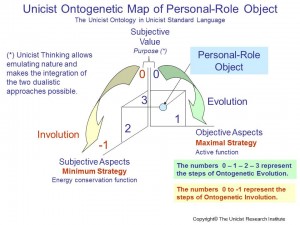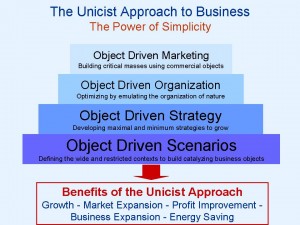DNA of Leadership: Breakthrough in the Research of Behavior
The discovery of the unicist ontological structure describes what can be defined as the genome (DNA) of leadership. The knowledge of its structure and the different categories of leaders allow defining the functionality of the leadership style of an individual and how s/he complements and supplements with others.
 Leadership is based on the need to sustain one’s authority. But the participation of others is a condition of leadership. A leader is such because s/he is followed. Therefore, in terms of the unicist logic, participation is the active function of leadership and the energy conservation function is given by the power a leader has to impose her/his authority.
Leadership is based on the need to sustain one’s authority. But the participation of others is a condition of leadership. A leader is such because s/he is followed. Therefore, in terms of the unicist logic, participation is the active function of leadership and the energy conservation function is given by the power a leader has to impose her/his authority.
Shared objectives are the driver of leadership. Shared objectives precede the leader’s activity. Exceptions are new groups with no objectives. In this case, a creative leader is needed. Shared objectives are synthesized in the vision of a company or of a group.
Both the creative and the constructive leadership types are functional to develop maximal strategies. Maximal strategies requires democratic, authoritative and exemplarity driven leadership.
Both the authoritarian and the charismatic leadership types are functional to develop minimum strategies. Minimum strategies require a dualistic approach which includes authoritarian, charismatic and laissez faire leadership.
Authoritative paternalistic leadership is the catalyst for minimum strategies. When the catalyst is missing it works as an inhibitor of minimum strategies driving towards failure or inaction.
Diana Belohlavek
NOTE: The Unicist Research Institute was the pioneer in complexity science research and became a private global decentralized leading research organization in the field of human adaptive systems.
www.unicist.org/turi.pdf







